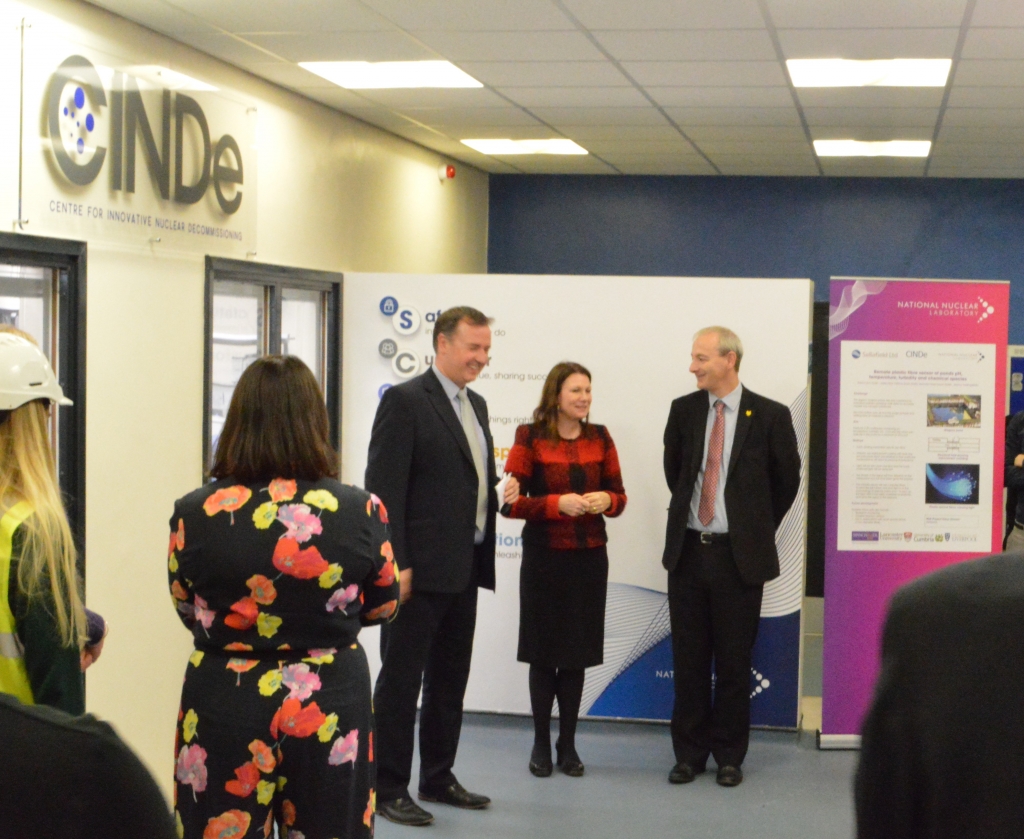Tuesday 2 October 2018
Unique Centre for World-leading Research Offically Opens in Workington
A centre which offers unique research opportunities in the nuclear sector for would-be PhD students has officially opened in Cumbria.
The Centre for Innovative Nuclear Decommissioning – known as CINDe – opened in Workington with an aim to nurture high impact research that has ground-breaking potential for industrial applications.
Led by the National Nuclear Laboratory, and in partnership with Sellafield Ltd and a network of Universities that includes the University of Manchester, Lancaster University, the University of Liverpool and the University of Cumbria: the centre is the first of its kind.
Over the last 12 months, students from around the world have been putting forward their submission for research. Proposals are then considered by those leading the Centre’s work.
So far, 10 students have been accepted to carry out their PhD studies at the centre.

Professor Anthony Banford at National Nuclear Laboratory is leading the project. He explained why the CINDe was so important to academia and industry:
“With the demand for innovation within the Energy sector greater than ever before coming at a time when funding across all sectors is increasingly limited, there has never been a greater need to find innovative ways to deliver services across the nuclear sector.
“CINDe is a unique proposition: thanks to the close working of industry and academia, it offers students the opportunity to carry out research that will be actively tested in industry. This is a critical benefit of what CINDe provides: a direct channel between academia and industry.”
Professor Banford added that such activity was vital for developing the pipeline for future technologies.
“We have been very pleased with the interest from potential students to date. So far, we have 10 PhD enrolled to take part in the PhD programmes and we are looking forward to how their work, and work of future studies develop.”
